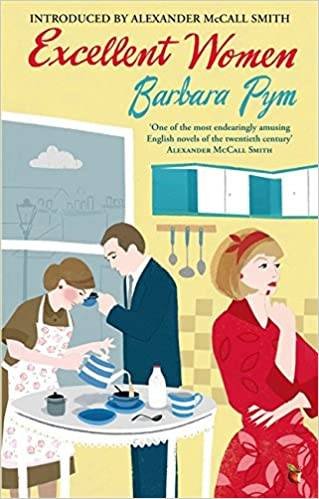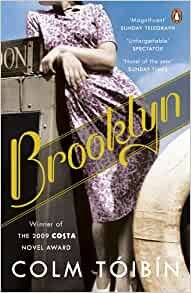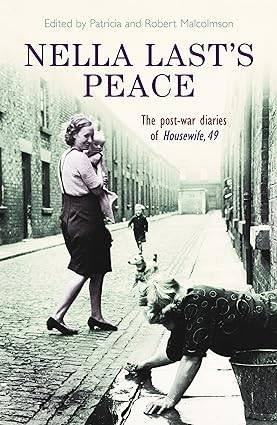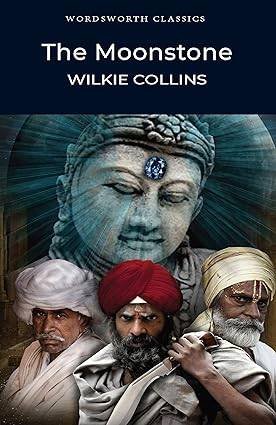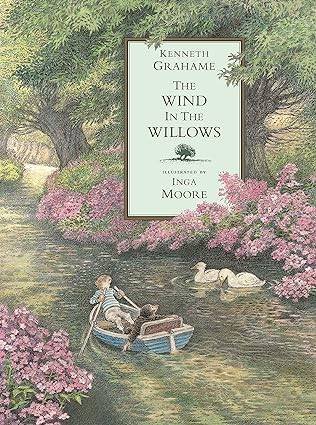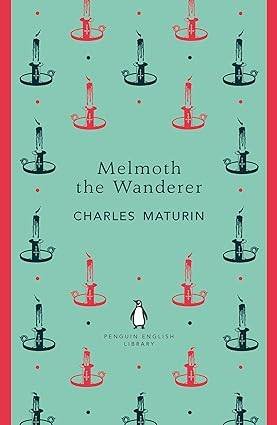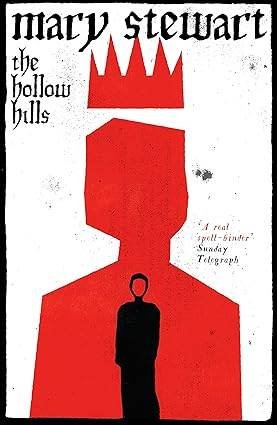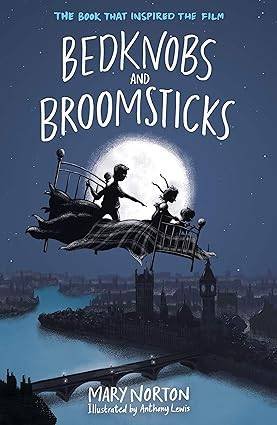Home » Book Reviews » Barbara Pym » Excellent Women by Barbara Pym
Possible spoilers ahead
I do love Barbara Pym’s books, with their amusingly dry but gentle humour and with just an aside or observation or thought that conveys so much and so accurately sums up the situation. They’re an absolute joy to read. I have a few of her books on my shelf waiting to be read, but I try to ration myself and space out my reading of them so I always have one to look forward to! I am treating myself at the moment by picking up this one.
The book is set in the 50s, and Mildred Lathbury is the main character and it is written from Mildred’s point of view so we are privy to her thoughts and gloriously funny observations (just the perfect delicious ingredients for a Pym novel!). She is a very capable and excellent (!) woman, a clergyman’s daughter living alone in London, a regular church-goer, and her good nature is often taken advantage of by more selfish people asking her to do things for them. Mildred is intrigued by her new neighbours, Helena and Rocky Napier, who seem very glamorous to her, and she gets drawn into their world and activities which are so very different from her own. She is particularly fascinated by Rocky, who she can see is well aware of the fascination he creates in women like Mildred, but even acknowledging this Mildred can’t help being fascinated by him. Helena begins a relationship with her colleague, Everard Bone, who Mildred also meets. Mildred is also close friends with priest Julian and his sister Winifred, and observes Julian falling for their glamorous tenant, Allegra Gray, and sees poor Winfred feeling pushed out, until Allegra later leaves Julian. Mildred also regularly sees her old school friend, Dora, and Dora’s brother, William, who it was once presumed she would marry but Mildred prefers them being comfortable friends. The Napiers eventually leave, and the flat is then taken on by two women friends. The book ends with Mildred meeting Everard at his house for lunch (though he has invited her there on the assumption that she will cook the lunch!), and he then asks her to index his book for him, which she isn’t particularly keen to do but philosophically decides that between this and keeping an eye on Julian, she will then have a pretty full life.
Awww, there’s a hint of sadness (for me) in the fact that Mildred feels that indexing a book and keeping an eye on her friend will provide her with a full life, I feel a little sad at her absence of ambition or of finding a partner for herself (though this was the 50s, so career options for women were probably different then). But she seems relatively content, and I guess this poignancy is one of the wonderful qualities of Pym’s books, the characters are content with their quiet lives (or at the most they are politely wistful for something more). And perhaps this is the unusualness of Pym’s books too, as most other books have the central character achieving (or aiming to achieve) a great relationship or a great job, but we leave Pym’s characters much as we find them, just quietly going about their everyday lives with no likelihood of anything happening to change that. And I think that’s why I love the books so much and why Pym is such a wonderful writer, as I feel it takes more skill and delicacy to write about such non-eventual things, rather than banging out big dramatic exciting scenes full of action action action. This story is really just a period of time in Mildred’s life, rather than being about a particular event as such, so there is no real starting point or conclusion, we just observe her and then leave her. But I was disappointed to reach the end and leave Mildred as it was so enjoyable to read about her, the book was like a comfort blanket really, whilst also being full of clever amusing passages which would often make me chuckle to myself, and thoughtful poignant phrases that tugged at my heartstrings too. I often read the book at night to calm me and lull me to sleep, but then I’d have to re-read it in the daytime when I was alert as I didn’t want to miss any of the wonderful phrasing!
And Mildred’s thoughts and observations were so sharp and funny and touching and gently judgmental (of herself as well as of others) and so aptly expressive for the particular situation, they were such a delight to read! I ended up listing a few of my favourite ones, so I could amuse myself by reading them back again when I’d finished the book, but then the list just grew and grew as the writing is just so wonderful! So (really just to indulge myself!) here are my favourites below:
‘The two flats, not properly self-contained and without every convenience, “I have to share a bathroom” I had so often murmured, almost with shame, as if I personally had been found unworthy of a bathroom of my own’.
‘I met her for the first time by the dustbins…I was embarrassed that we should meet like this. I had meant to ask Mrs Napier to coffee one evening. It was to have been a gracious civilised occasion, with my best coffee cups and biscuits on little silver dishes. And now here I was standing awkwardly in my oldest clothes, carrying a bucket and a wastepaper basket’.
‘I, mousey and rather plain anyway, drew attention to these qualities with my shapeless overall and old fawn skirt.’
‘I could hardly admit to Mrs Napier that at one point during the afternoon I had arranged to be brushing my flight of stairs so that I could peer through the banisters and watch her furniture being brought in’.
“Oh”. I was silent with wonder, and also because I was not at all sure what an anthropologist was and could think of no intelligent comment to make’.
‘The burden of keeping three people in toilet paper seemed to me rather a heavy one’.
‘I stretched out my hand towards the little bookshelf where I kept cookery and devotional books, the most comforting bedside reading. My hand might have chosen Religio Medici, but I was rather glad that it had picked out Chinese Cookery’.
‘I had an idea that I might ask her in to coffee sometime but hesitated about it because I did not quite know how to convey the impression that it was not, of course, to become a regular thing’.
‘I remembered many sticky church functions which might have been improved had somebody happened to open a bottle of wine. But people like us had to rely on the tea-urn, and I felt that some credit was due to us for doing as well as we did on that harmless stimulant’.
‘I forebore to remark that women like me really expected very little – nothing, almost’.
‘I could see very well what she meant, for unmarried women with no ties could very well become unwanted…I was not really first in anybody’s life. I could so very easily be replaced’.
‘Julian waved his brush towards me in a despairing gesture, showering everybody with drops of distemper’.
“You know Mildred would never do anything wrong or foolish”. I reflected a little sadly that this was only too true and hoped I did not appear too much that kind of person to others. Virtue is an excellent thing and we should all strive after it, but it can sometimes be a little depressing’.
‘I did not then know, to the extent I do now, that practically anything may be the business of an unattached woman with no troubles of her own, who takes a kindly interest in those of her friends.’
‘The elderly ladies and dim spinsters who form a proportion of church congregations everywhere’.
‘His wife fussed over the new arrivals, trying to prevent them from following their natural inclination to crowd into the back of the church’.
‘I suppose married people get so used to calling each other “darling” that they never realise how false it sounds when said in an annoyed or irritable tone’.
“They’ve moved me to a new office and I don’t like it at all. Different pigeons come to the windows”.
‘Then I went back to my flat and collected a great deal of washing to do. It was depressing the way the same old things turned up every week. Just the kind of underclothes a person like me might wear, I thought dejectedly, so there is no need to describe them’.
‘It was a pity I had not thought of reading up the subject a little, that would have been far more to the point than buying a new hat. It was humiliating to realise that everybody in the room but me understood and was able to take an intelligent interest’.
‘I began imagining him as a clergyman and decided that he would make a good one. His rather forbidding manner would be useful to him. I realised that one might love him secretly with no hope of encouragement, which can be very enjoyable for the young or inexperienced’.
“Well, I haven’t really anything to eat at home”, I began, but then stopped as I realised that a dreary revelation of the state of one’s larder was hardly the way to respond to an invitation to dinner’.
‘He suddenly smiled and I remembered my Lenten resolution to try to like him. It was getting a little easier but I felt that at any moment I might have a setback’.
“You know the kind of thing…” As I did not know, I could only go on tidying my hair in a sympathetic silence’.
‘Surely many a romance must have been nipped in the bud by sitting opposite somebody eating spaghetti.’
‘It was a kind of fiction that we had always kept up, this not knowing anyone at the moment that we wanted to marry, as if there had been in the past and would be in the future’.
“Do you think Mrs Gray will marry again?” I asked craftily…”You mean Father Greatorex?” asked Sister Blatt…”He did give her a pot of jam”.
“Widows nearly always marry again”…”Oh, they have the knack of catching a man”…”Like mending a fuse” I suggested, though I had not previously taken this simple view of seeking and finding a life partner’.
‘He had given me the photograph one Christmas and I had given him an anthology of poetry, which seemed an unfair exchange, my gift being so much more revealing than his’.
‘I was now put in my place as the kind of person who would have an oven cloth hanging on a nail by the side of the cooker’.
“Yes, it is difficult, when something is given as a wedding present”, I said. But how could people foresee the separation of a happy pair and always give presents that could if necessary be easily divided? Surely that was too cynical a view for even the most embittered giver to take of marriage?’.
‘I was so astonished that I could think of nothing to say, but wondered irrelevantly if I was to be caught with a teapot in my hand on every dramatic occasion’.
‘It was one of those sad late September evenings when by switching on a bar of the electric fire one realises at last that summer is over’.
‘There are some things too dreadful to be revealed, and it is even more dreadful how, in spite of our better instincts, we long to know about them’.
‘There can be no exchange of glances over the telephone, no breaking into laughter…I hung up the receiver, thinking that the telephone ought never to be used except for the transaction of business’.
‘I wondered why it was that tea could vary so, even when one followed exactly the same method in making it. Could the emotional state of the maker have something to do with it?’
‘So he did remember me like that after all – a woman who was always making cups of tea’.
‘I pulled myself up…wondering why it is that we can never stop trying to analyse the motives of people who have no personal interest in us, in the vain hope of finding that perhaps they may have just a little after all’.
‘There was a short silence as is sometimes customary after speaking of the dead, though in this case the people referred to might have been thought to have met with a fate worse than death, for they had left us and been received into the Church of Rome’.
‘I decided that I would have lunch in the great cafeteria…it would encourage a suitable frame of mind, put me in mind of my own mortality and of that of all of us here below, if I could meditate on that line of patient people moving with their trays’.
Ok, I know there are a lot, but aren’t they all just wonderful?! I honestly think there’s none I could have left out, all of them make me smile or tug at my heartstrings. Wow, Barbara Pym is just an amazing writer, I adore her! I think this is my favourite book of hers that I’ve read so far, it’s such a delight, such a lovely lovely heavenly book! I can’t wait to treat myself again by picking up the next book of hers waiting on my shelf, I have Quartet in Autumn, and Jane and Prudence waiting deliciously and enticingly to be read, ooooh, which to choose first…! And I see there is a book about Barbara Pym’s life, The Adventures of Miss Barbara Pym by Paula Byrne, with extracts from her diaries and letters, which sounds a really good read too, it would be interesting to learn more about her and I didn’t have any idea that she had done so many things in her life!
